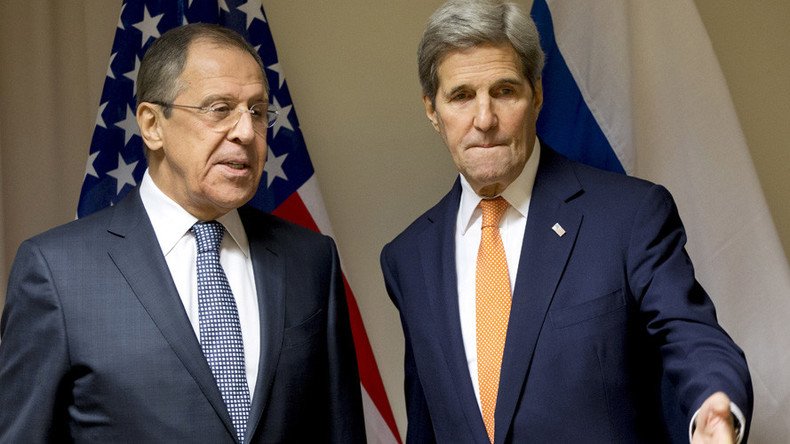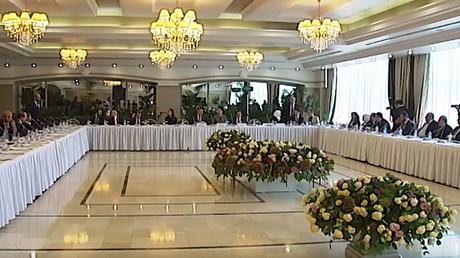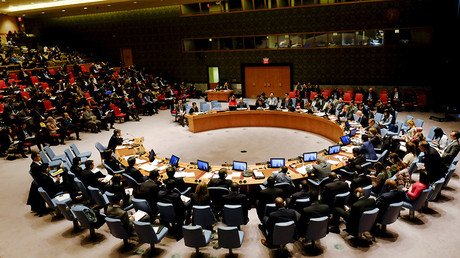US distorts UN-backed principle of forming Syrian talks’ opposition delegation – Moscow

The United States deviates from the principle of forming a representative delegation of Syrian opposition for the forthcoming peace talks embodied in the UNSC resolution, Russian Foreign Ministry’s spokeswoman Maria Zakharova said.
Zakharova stressed that the current US stance on the composition of the Syrian opposition delegation is “a departure from what was agreed during the meeting of the International Syria Support Group (ISSG) and then supported by a unanimously accepted UN Security Council resolution” adopted on December 18, 2015.
Such reaction of the Russian Foreign Ministry was provoked by the words of the US State Department deputy spokesman Mark Toner, who claimed on Thursday that “last month’s conference in Riyadh brought together a broad, representative group of the opposition.”
Zakharova said that the UNSC resolution “made it clear that the delegation of the Syrian opposition should be formed particularly taking into account the opposition meetings that were held in Moscow, Cairo and Er-Riyadh as well as other similar initiatives, so that [this delegation] could be really representational and inclusive as well as represented a broad set of forces opposing the rightful Syrian President Bashar Assad.”
She also emphasized that this issue was discussed by Russian Foreign Minister Sergey Lavrov and his US counterpart John Kerry during the meeting in Zurich on Wednesday.
READ MORE: ‘We’ll fight ISIS until its complete annihilation’ – Russian FM Lavrov after Kerry talks
After the talks with Kerry, Lavrov also stressed that the UNSC resolution demands that a special envoy of the UN Secretary General should send invitations to the forthcoming negotiations to all Syrian political forces that “should represent the Syrian society to the fullest extent possible, including both the government and the opposition” as well as taking into account those opposition groups that sent their representatives to the various opposition meetings that took place over the past few years.
It is up to the UN General Secretary’s special envoy in Syria Staffan de Mistura to decide who should be invited to the negotiations and there “can be no unilateral speculation” by third parties concerning his mandate, Lavrov said.
The UN envoy already hinted that some states' meddling with his mandate is obstructing the peace process, the Foreign Policy reported, citing Mistura’s confidential January 18 briefing to the Security Council.
“I would expect all sides to recognize my mandated responsibility to finalize a list of invitees to the process, to include all those I deem appropriate,” de Mistura reportedly said, complaining that the Saudi-backed opposition coalition and its “sponsors insist on the primacy and exclusivity of their role as ‘THE’ opposition delegation.”
Addressing reports of Mistura’s concerns on Thursday, Toner admitted that the US has been working “obviously, closely with the Saudis” and felt that “the Saudi-led process that led to the creation of this HNC… is legitimate, it’s broad, it’s representative, and we think it should move forward.”
During a meeting in Zurich, top Russian and US diplomats “came to an unambiguous conclusion that the UN Security Council Resolution 2254 will remain the main basis for us to move forward.” The two diplomats also “discussed practical steps to ensure the conditions for a ceasefire” in Syria and agreed that that the peace talks between the Syrian government and opposition shouldn’t be postponed beyond January.
So far, the intra-Syrian talks are scheduled on January, 25, and are due to take place in Geneva. The negotiations will focus on such issues as the tasks of the transition period, preparation of the new constitution and early election.














